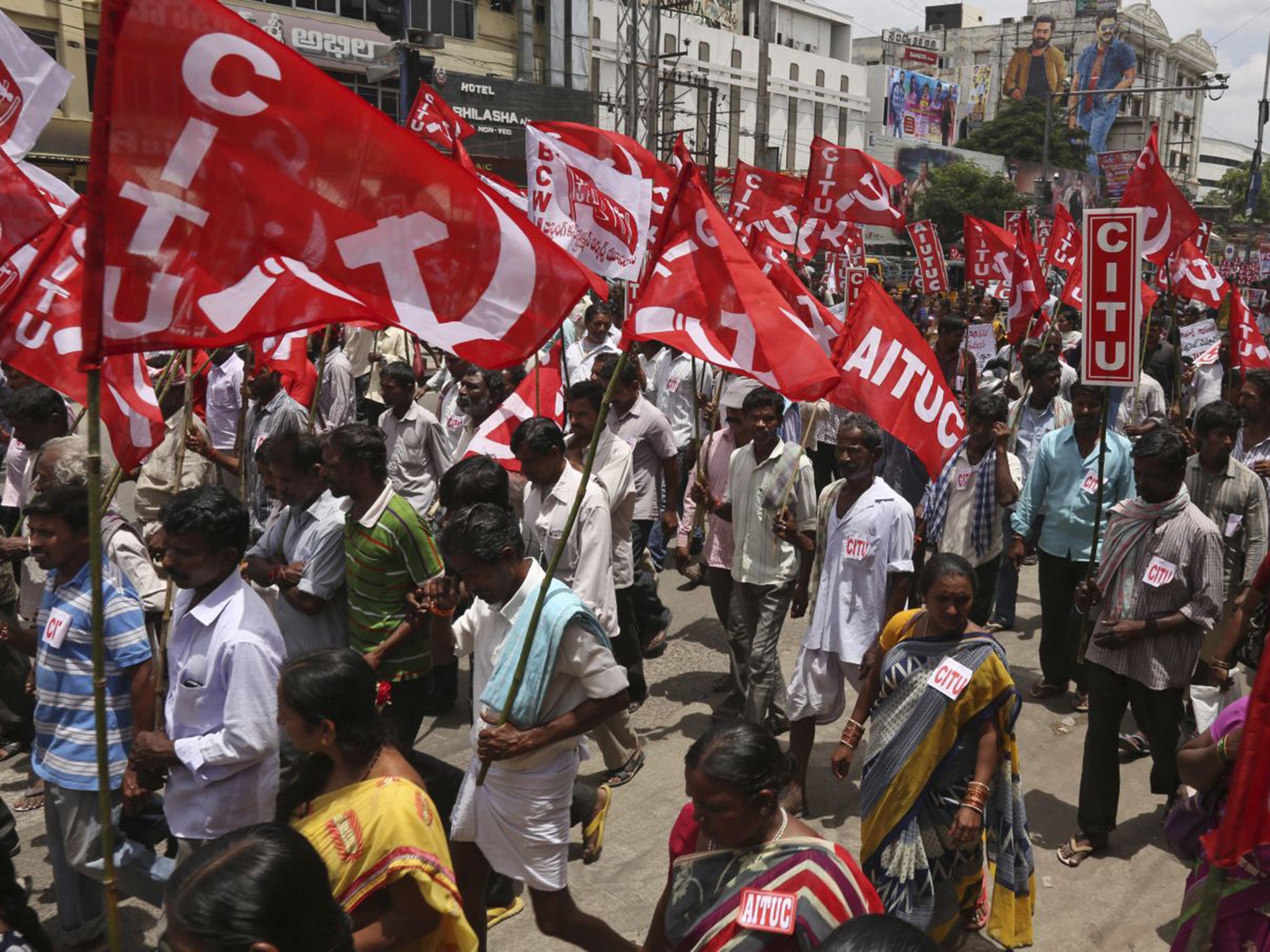Tens of millions strike in India in battle for higher wages
Reports suggest more than 150 million workers have gone on strike against the government's economic reforms

Your support helps us to tell the story
From reproductive rights to climate change to Big Tech, The Independent is on the ground when the story is developing. Whether it's investigating the financials of Elon Musk's pro-Trump PAC or producing our latest documentary, 'The A Word', which shines a light on the American women fighting for reproductive rights, we know how important it is to parse out the facts from the messaging.
At such a critical moment in US history, we need reporters on the ground. Your donation allows us to keep sending journalists to speak to both sides of the story.
The Independent is trusted by Americans across the entire political spectrum. And unlike many other quality news outlets, we choose not to lock Americans out of our reporting and analysis with paywalls. We believe quality journalism should be available to everyone, paid for by those who can afford it.
Your support makes all the difference.Millions of public sector workers have gone on strike in India to protest against the government’s economic policies.
Public transport was disrupted and state-run banks, power stations and factories were closed as 10 trade unions called nationwide walkouts.
Reports suggested more than 150 million workers were taking part in the industrial action but the figure had not been confirmed.
"This strike is against the central government, this strike is for the cause of the working people," Ramen Pandey, president of West Bengal Indian National Trade Union Congress, told Al Jazeera.
"Our strike will be 100 per cent successful ... we will prove that this strike is the world's largest ever."
The strike was called after union leaders rejected the government’s offer to increase the minimum wage for unskilled workers from 6,396 rupees (£72) a month to 9,100 rupees (£102).
There are also concerns that raising caps on foreign investment could lead to privatisation and eventually to the loss of jobs.
Prime Minister Narendra Modi's government has argued the reforms are needed to improve the economy.
Protestors took to the streets to campaign against the reforms and more than 20 people were arrested after two government buses were damaged, police official Anuj Sharma told the AFP news agency.
Join our commenting forum
Join thought-provoking conversations, follow other Independent readers and see their replies
Comments